How Imperial’s animal research facilities have fared during the pandemic
by Ellyw Evans
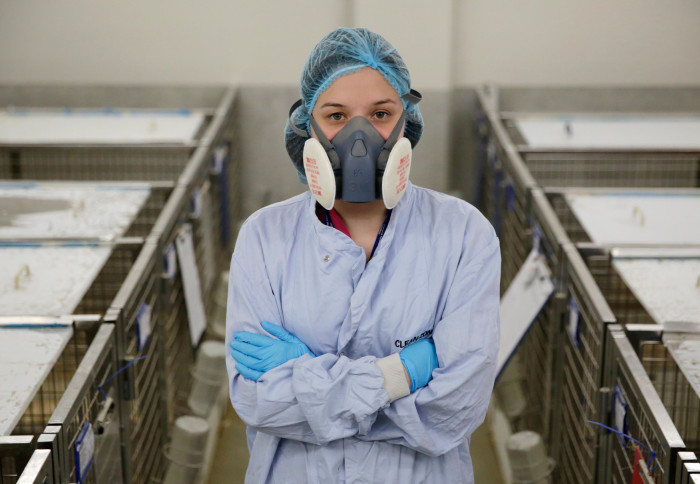
Imperial’s animal research facilities have remained open during the pandemic to ensure the highest standards of animal care and welfare.
The College’s Central Biomedical Services (CBS) department – which cares for the animals used by the College for research – has remained open throughout lockdown to provide excellent care to the animals, as well as support essential COVID-19 research projects.
The challenges of the pandemic have highlighted the commitment of CBS staff to ensuring that Imperial uphold the highest standards of animal welfare. Several changes were introduced during lockdown across the multi-campus Facilities to keep essential research running, ensure CBS staff are safe, as well as maintaining high levels of animal welfare.
Here six staff members across different roles share their experiences:
Rob Floyd, Director of the Central Biomedical Services Department
My heroes are those that are caring for the animals
“Like many, I was not expecting the COVID-19 pandemic, which turned into a rapidly changing situation. Our priority was to ensure all our facilities remained open for current research projects to be continued and new essential COVID-19 research to be started.
"I work with an excellent team and management planned for the worst-case scenarios. Those who are able to can now work from home, but my heroes are those that are caring for the animals, the animal technicians who cannot work from home and must be at work to carry out their role every day of the week so that research at the College can continue. Their commitment and dedication is outstanding.
"None of what we do would be possible without a network of support from the College’s leadership team, Estates, Security, Occupational Health, ICT to name a few. Their support is even more important as we ease out of lockdown.”

Tess, CBS Facility Manager, South Kensington and St Mary’s Campuses
I've had countless offers from people asking to help care for the animals should we ever need it
"We place a high value on the animals under our care and the science and progression that they contribute to. Imperial has a strong culture of care for both people and the animals. It’s been important to maintain the facilities during the pandemic, as we did not want to waste hundreds or even thousands of animals' lives and put back the science that they have contributed to. Additionally, if we had had to cull all of our animals that would have put an enormous emotional burden on those that would have had to perform this task.
"When using animals in science one of the key factors everyone needs to consider is the 3Rs: reduction, replacement and refinement. Working to this principle and maintaining our animals has also meant that reopening facilities to new research has been a smooth process, without major delays.
"I have learnt how committed the CBS team are to doing what they can to provide excellent care and welfare to our animals and supporting the researchers during a time that has been quite stressful for many – I am immensely proud of them all. I have also learnt how willing our researchers are to support CBS as a department.
"I've had countless offers from people asking to help care for the animals should we ever be in a position to need it. This shows how close our working relationship is between the research community and CBS but also their dedication to animal welfare and the 3Rs.
"During lockdown there was an urgency for research groups to work on COVID-19 whether that has been vaccination based or infection models. This has required our Named Animal Care & Welfare Officers, our Home Office Liaison Officer, our vet team and the safety team to respond quickly to these requests and ensure the appropriate steps and resources are in place. They deserve recognition for helping this research to progress as it has."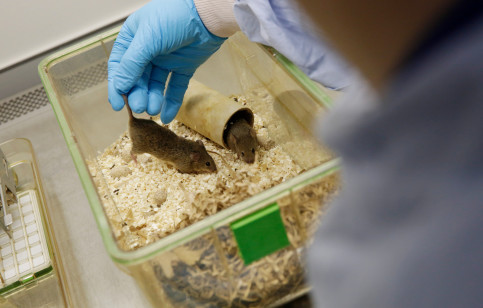
Aaron, Support Services Supervisor, South Kensington Campus
The pandemic has reminded me of how great of a team we are
"In order to maintain social distancing measures and ensure safety of staff, a rota was implemented which changed our work hours and the number of days we come into work per week. This helps us to avoid the number of times we come in contact with other people on public transport and in the workplace. My role in CBS was not affected in any way as the work I carry out in the unit is essential to ensure the animal technicians get their clean cages, sterilised goods, freshwater and diet to carry out their husbandry duties.
"It’s crucial to maintain facilities as there is still potentially-lifesaving research that is being carried out in the department. There are experiments that have had months, or even years of preparation in order to get to the stage that they are at now; to even put a pause on them could have a big effect on their results. From an animal welfare point of view, the amount of basic care given to the animals we have in the unit cannot be neglected so it is important to maintain husbandry protocols at all times whilst we have animals in our care.
"The pandemic has reminded me of how great of a team we are, not only in South Kensington but the whole of CBS. We have managed to pull together to maintain our standards whilst still keeping in good spirit in these uncertain times. I also realised how busy and active my life was before the lockdown. Even though I always moaned to myself on how I never had time to do anything and relax, I've now learnt to appreciate how lucky I actually am to be busy and active in life, as not everybody has that opportunity."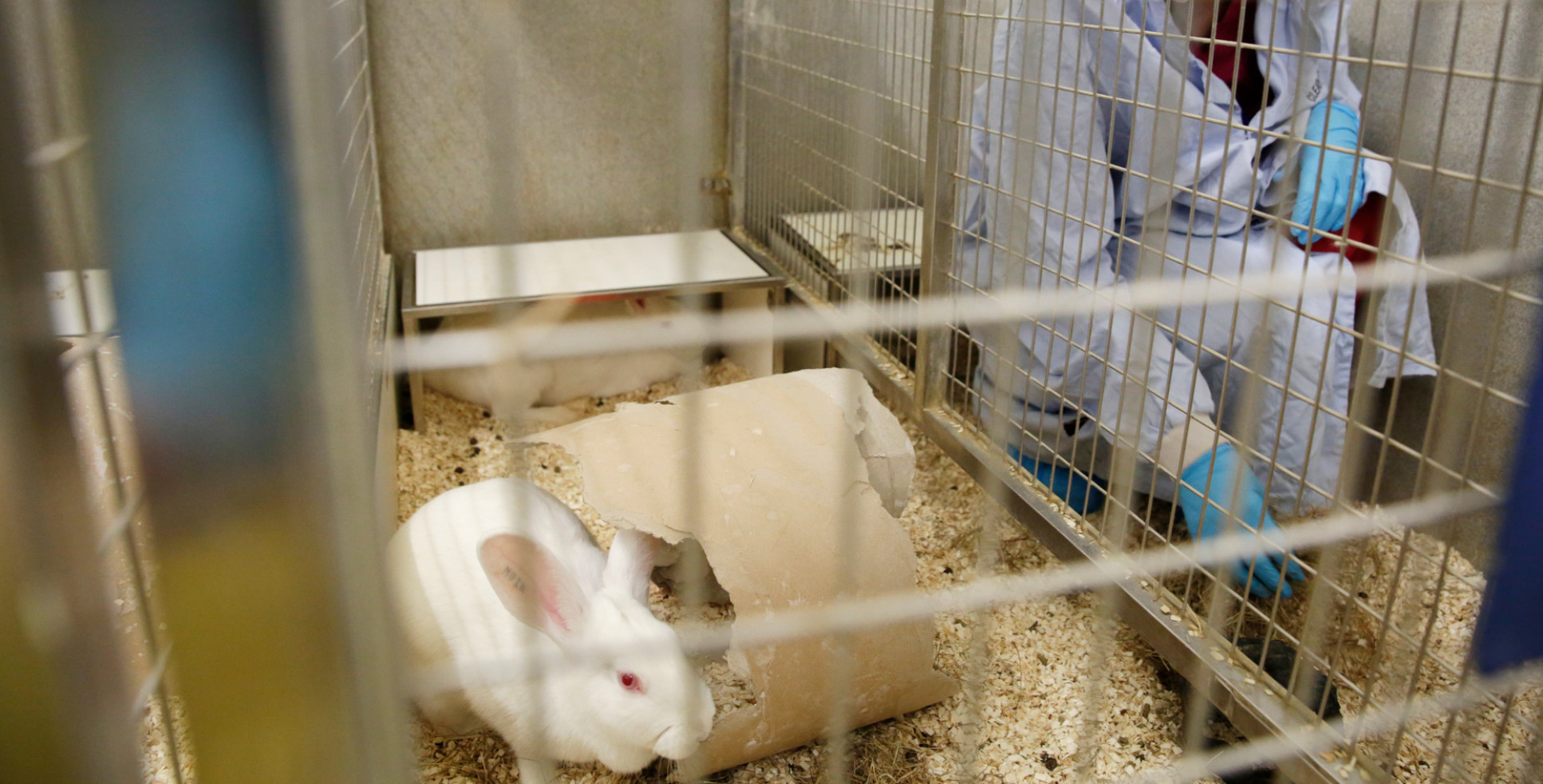
Kasia, Named Animal Care & Welfare Officer, St Mary's Campus
It feels satisfying that we’ve been able to play a part in important research during this time
"I am responsible for day to day running of the animal research facility at St Mary’s Campus. We are normally a small team of two, but six weeks ago we were joined by a CBS apprentice which has been a great help!
"One of the biggest changes has been how we communicate with colleagues and researchers; I’ve had to become more flexible and adapt to remote working. We’re lucky that Microsoft Teams meetings work quite well for the team and I’m impressed with how quickly we’ve adapted to this new way of working.
"It’s more important than ever to maintain our Facility during lockdown as our work supports critical research related to COVID-19. It feels satisfying that we’ve been able to play a part in important research during this time."
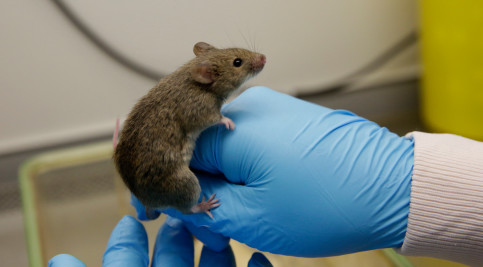
Helen, Home Office Liaison Officer
We still have to do everything necessary to maintain compliance with all regulations throughout
"I act as a secretariat for the College’s Animal Welfare and Ethical Review Body (AWERB). Legally any establishment that carries out scientific research involving animals must be authorised under a three-tier system of licensing that gives permission to carry out that work. No such work involving animals can be done without the approval of AWERB and the Home Office. I’m also a Home Office Liaison Officer, so the main point of contact with the Animals in Science Regulation Unit, and the Inspectors within the Government’s Home Office. These are just some of the processes to ensure the welfare of the animals and that all the necessary steps are being put in place.
"As we've normally worked electronically with the vets and with the animal technologists, remote working has largely been business as usual. Microsoft Teams meetings have worked amazingly well and are far easier to organise than scrambling to find a room for 20 people at South Kensington Campus!
"My priority has been to facilitate fast-tracking COVID-19 research projects through the regulatory process as quickly as we can. The Home Office inspectors are also doing their best to fast track those projects through the system. Obviously, we want to fast track our COVID-19 projects through as quickly as possible, but we still have to do everything necessary to maintain compliance with all the legal requirements throughout.
"We were initially worried about maintaining the AWERB process, but actually in practice, it's turned out to be absolutely fine – we've been pleasantly surprised."
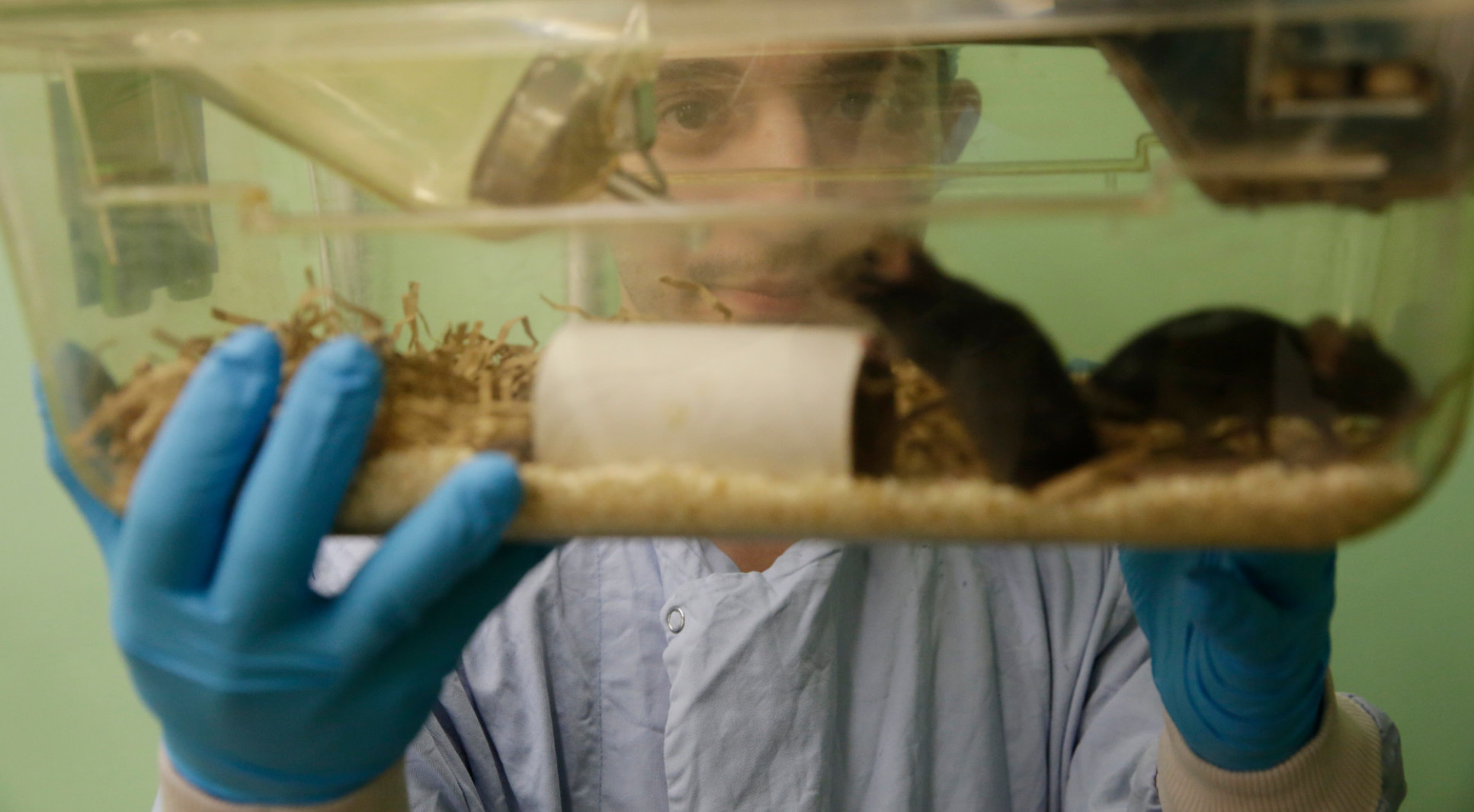
Bruna, Senior animal technologist, South Kensington Campus
We all worked together to keep our research going, and I am very proud of all of us
"Since the beginning of lockdown and due to the nature of our job we knew that we had to have a contingency plan in order to keep our animal welfare standards and staff health a priority. Together with senior managers, we made a staff rota in order to have the minimum number of people on-site during the lockdown. We also changed our timetable, starting and finishing early in accordance with the government guidelines. Some of us were required to work from home at least two days per week, and as you can imagine this came with all the difficulties, such as caring responsibilities at home.
"Keeping the facility open was not only important for the welfare of our animals but also for our staff; I believe having a routine helped a lot during this very difficult time. We all worked together to keep our research going, and I am very proud of all of us."
Article text (excluding photos or graphics) © Imperial College London.
Photos and graphics subject to third party copyright used with permission or © Imperial College London.
Reporter
Ellyw Evans
Faculty of Medicine Centre